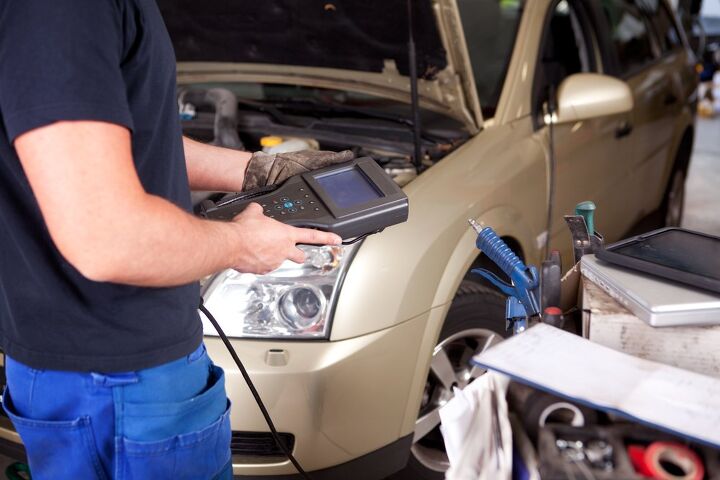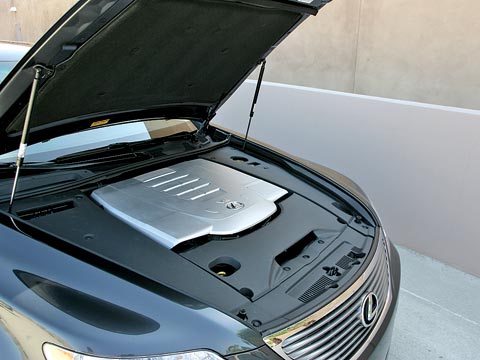#RightToRepair
Consumer Advocacy Group Demands Driving Data Be Controlled by Drivers
The Global Alliance for Vehicle Data Access (GAVDA) has issued a letter to automotive manufacturers around the world to request consumers be given direct access to the data generated by the vehicles they drive. While the group is comprised of organizations representing rental agencies, car sharing, independent vehicle repair shops that also want access to the information, it’s likewise backed by several consumer advocacy groups that worry customers and small businesses are being taken advantage of.
At the core of the letter is a refutation of claims made in a June 3rd memo the Alliance for Automotive Innovation (AAI) sent to Congress. That group is an assemblage of the world’s largest industry players with an aim to monetize driving data as quickly as possible. It just so happens that the duo are diametrically opposed to how the government should handle user information.
The Hero We Need: Consumer Access to Repair Coalition
When it comes to activism, it’s best to choose your battles carefully. Fortunately, there aren’t too many causes within the auto industry and most are easy to get behind.
Even though environmental activists sometimes find themselves at odds with reality, their hearts are usually the right place, and they’ve encouraged automakers to try new and interesting things with transportation. Safety advocates can likewise go overboard, but we wouldn’t have seen cars get dramatically safer (or heavier) since the 1970s if they hadn’t.
Our favorite has to be consumer advocacy, however. With the exception of the occasional predatory lawsuit looking to take advantage of a dumb corporate decision, there’s precious little to scoff about. It also tends to overlap with our pet peeves by decrying bad business practices within the industry. Case in point, the Consumer Access to Repair Coalition has recently asked Congress to rethink how vehicular data is shared — noting that automakers shouldn’t need real-time monitoring for repairs and that the technology likely poses an unnecessary security risk.
Tesla Clearly Confused About Secondhand Vehicle Sales
Last month we covered an alarming trend where Tesla appeared to be intentionally removing features from vehicles as they entered the secondhand market. Used automobiles are typically sold with their original equipment intact. The previous owner may have wanted to yank out the tape deck or remove the fuzzy steering wheel cover before handing it over, but these are things you probably negotiated before any money changed hands. Unfortunately, things have only grown more complicated in the (post)modern era.
Reports have rolled in of Tesla stripping cars of thousands of dollars worth of features (mainly Autopilot and Ludicrous Mode) simply because they’re in line for a new owner. This sets an ugly precedent for the industry and undermines the time-honored tradition of the private sale. However, there seems to be some amount of confusion surrounding the company’s official policy and its behavior.
It's Payback Time: Right-to-repair Movement Targets John Deere
With the California Farm Bureau effectively giving away the right of farmers to repair their own equipment without involving the distributor in the spring of 2019, the right-to-repair movement fell back on its heels. Horrified by the ground lost, the group has rallied to better incorporate those hoping to fix or modify mobile devices and automobiles. Despite being disparate products, members share a common goal of returning control to consumers and preventing various industries from having a stranglehold on products they were supposed to relinquish ownership of when sold.
Hoping to better illustrate the plight of farmers, Bloomberg published an article outlining one man’s struggle with John Deere. Kevin Kenney is a Nebraska-based engineer who’s also a member of a grassroots campaign to undermine the corporate mandate against repairing its tractors. He believes farmers owe it to themselves to know how to fix their own equipment or risk finding themselves perpetually at the mercy of the manufacturer — while losing the skills to be self-reliant.
Why should you care? It’s presumed automakers will follow a similar business plan as vehicles become increasingly networked and electric, and as executives redefine what constitutes ownership while using proprietary software as their shield. Pretty much exactly what John Deere is doing.
A Buyer's Dismay: Tesla Reportedly Removes Features From Used Model S
I’m a broken record when it comes to consumer protections. Environmentalism may be more fashionable but the green movement has already amassed a sizable army in the current year. Someone needs to be watching out for Joe Customer because companies are stepping up their game. While we’ve often focused on data privacy, right-to-repair laws, and the hidden perils of subscription services, ownership rights also deserve a bit of attention because they’re all sort of interconnected.
As products become increasingly digital, it’s becoming fuzzy as to who actually owns something. In previous decades, someone wanting to outfit their computer with the latest software meant they had to go out and buy it. Now you can simply download stuff over wifi, with no need to have the physical copy cluttering up your desk. But this convenience factor has ramifications. A subset of the video-game community is up in arms over backwards compatibility and the ability to truly own their purchases. With games and movies beginning to occupy internal storage almost exclusively, they’ve grown concerned that companies will attempt to force them to repurchase old games on new platforms to turn a quick buck.
Why is this being explained to you on a car website? Because the automotive industry may be about to engage in similar practices. Jalopnik recently published an account of a man buying a secondhand Tesla Model S, only to see it stripped of thousands of dollars in features.
States Begin Dealing With Driving Data, Right-to-Repair Laws
In reading this website, you’ve no doubt come across paranoid rants about automotive companies vacuuming up your personal data as connected cars become the norm — often written by yours truly. Frequently bleak, they address a multitude of concerns we believe will only get worse before they can get better.
A large part of that has to do with automakers seeing the potential of leveraging customer data, like so many tech companies have before them. But elected (and unelected) officials also seem to have a loose grasp of the technology and its potential ramifications. When the Department of Transportation initially approved self-driving vehicles for public testing, the guidelines were loose and largely dependent upon self-reporting — few wanted to stand in the way of developing systems that might someday save lives.
However, manufacturers are now beginning to issue over-the-air updates, perpetual internet connectivity, gamification, and in-car marketplaces (complete with advertisements). While the new technology has opened up new doors for customer experiences and corporate revenue, it’s accelerating at a pace that’s difficult to track. As a result, lawmakers in Massachusetts and California are starting to get antsy. The former hopes to address how data will be handled in accordance with the state’s right-to-repair laws. The latter is more directly concerned with privacy.
Massachusetts Right to Repair Law Left Senate
The Right to Repair law winds its way through the Massachusetts legislature. The law was approved in the Senate last week, says the AP via Businessweek The law now heads to the House of Representatives. If that sounds like deja vu to you, then your memory is excellent.
"Right To Repair" Debate Returns To Congress
After several abortive attempts over the last several congresses, the “Right To Repair” Coalition for Auto Repair Equality has had a new bill introduced in the 112th Congress with the goal of
requiring that car companies provide full access at a reasonable cost to all service information, tools, computer codes and safety-related bulletins needed to repair motor vehicles.
The auto industry has long opposed such bills, which have been passed on the state level but have never been passed into federal law. Back in 2009, then-head of the Alliance of Automobile Manufacturers lobby group, Charles Territo, argued against Right To Repair legislation in a TTAC editorial, calling it “a solution in search of a problem.” More recently, the AAM opposed a Massachusetts Right To Repair bill on the grounds that it would increase Chinese piracy of auto parts. Needless to say, now that CARE has finagled HR 1449 into Congress with bipartisan sponsorship (from Todd Platts (R-PA) and Edolphus Towns (D-NY)), the debate is about to get fired up all over again.
Industry Opposes Mass "Right To Repair" Legislation Over Chinese Piracy Fears
Legislation aimed at improving the transparency of Technical Service Bulletins (TSBs) has passed the Massachusetts state House of Representatives, and awaits approval by the Senate. If approved, Bill 2517 [full text in PDF format here] would require that
The manufacturer of a motor vehicle sold in the commonwealth shall make available for purchase to independent motor vehicle repair facilities and motor vehicle owners in a nondiscriminatory basis and cost as compared to the terms and costs charged to an authorized dealer or authorized motor vehicle repair facility all diagnostic, service and repair information that the manufacturer makes available to its authorized dealers and authorized motor vehicle repair facilities in the same form and the same manner as it is made available to authorized dealers or an authorized motor vehicle repair facility of the motor vehicle.
The Alliance of Automobile Manufacturers is opposing the bill, according to the DetN, because it believes the bill is motivated by parts manufacturers who want access to parts in order to reverse engineer and sell them. Literally. And yes, it is China’s fault.























Recent Comments